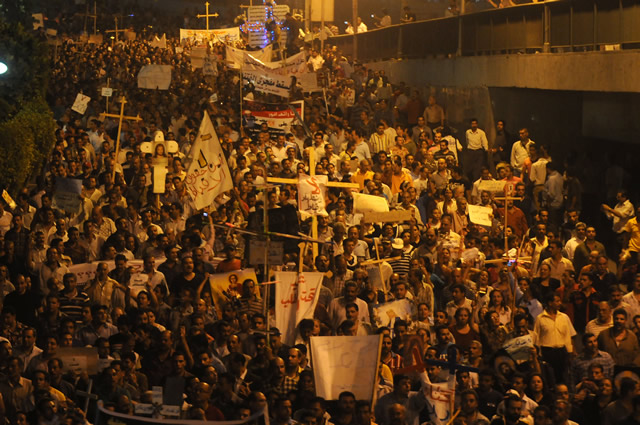Revolutions, Terrorists, and Tweets: Social Media and the Arab Spring
Seth McKinnis /
The Heritage Foundation will be holding a public event on February 13 to discuss the role of social media in the Arab Spring with experts from Heritage, Freedom House, and the Department of State.
Social media showed its political potential during the Arab Spring, allowing “crowdsourcing” and the coordination of large-scale protests. Street activists scheduled demonstrations through mass Facebook messages and globally communicated up-to-the-minute updates through Twitter. The coordination and communication capabilities available previously only to well-equipped and funded forces was at the fingertips of anyone with a cell phone or computer.
But revolutions against autocratic governments aren’t the only way social media are being used. Al-Shabaab, a Somali-based Islamist terrorist group, uses Twitter to announce assassinations and bombings. Who needs pamphlets when 140 characters of militant propaganda attract followers by the tens of thousands? After al-Shabaab threatened to kill two Kenyan hostages and tweeted pictures of dead French commandos killed in January’s failed hostage rescue, Twitter removed their account. But two weeks later, the group has a new Twitter account, gaining over 1,100 followers in just two days.
Al-Qaeda has also jumped on the social media bandwagon. The terrorist group increasingly uses social media to recruit, train, and coordinate members. Recruits can watch training videos on YouTube and connect with terrorist leaders on Facebook.
Social media have even created new fronts in armed conflict. Israel and Hamas waged a tweet war last November, tweeting barrages back and forth of thinly veiled threats and military announcements. Israel fired off a tweet celebrating the “elimination” of a Hamas leader. Hamas responded with a volley of threats. Israel tweeted back a YouTube video of strike attacks.
As cyber activists keep leveraging social networks as tools for change, authoritarian governments are developing increasingly sophisticated means of limiting Internet freedom. Palestine sentenced a man to a year in jail for insulting President Mahmoud Abbas on Facebook. Syria turned off electricity and telephone service to anti-regime neighborhoods to cut off their access to social media. Iran is even attempting to eliminate the Internet entirely in favor of a national government-controlled intranet.
As social media become an increasingly common forum for cyber activism and even warfare, developing technology will continue to alter how people and governments face change.

